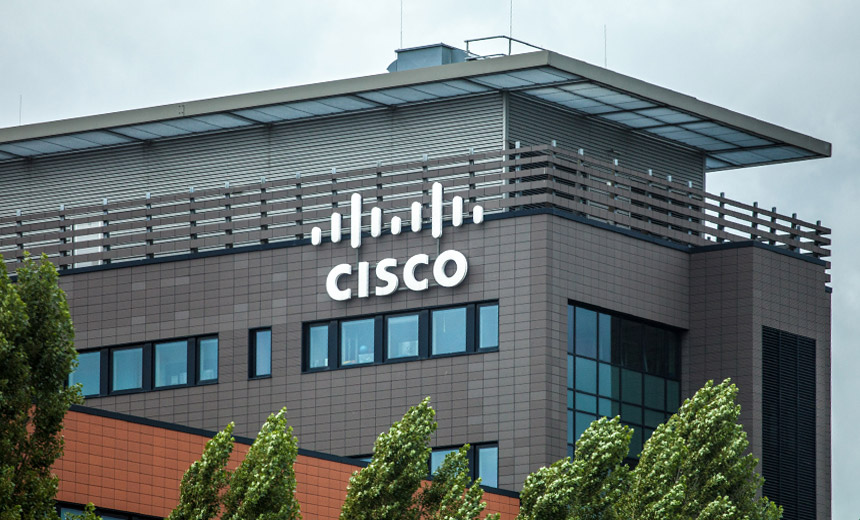DevNet Associate Certification Prep Training Courses Classes
- Description
- Schedule
- What You'll Learn
- Outline
- Prerequisites
- Income Expectations
- Next Step
- Tuition Fee
- Exam
DevNet Associate Certification Prep Training Courses Classes
DevNet Associate Exam v1.0 (DEVASC 200-901) is a 120-minute exam associated with the DevNet Associate - Developer Certification. This exam tests a candidate's knowledge of software development and design including understanding and using APIs, Cisco platforms and development, application development and security, and infrastructure and automation. The course, Developing Applications and Automating Workflows using Cisco Core Platforms, helps candidates to prepare for this exam.
The following topics are general guidelines for the content likely to be included on the exam. However, other related topics may also appear on any specific delivery of the exam. To better reflect the contents of the exam and for clarity purposes, the guidelines below may change at any time without notice.
Delivery Formats:
- Hands-On Instructor-Led Course
- On-Demand Classes
- Virtual Classroom Live
SCHEDULE DATES - 40 Hour Program
DevNet Associate
9AM - 5PM (Weekdays)
Start Date & Graduation Date
03/21/2022 to 03/25/2022
5 Days (40 Hours) a Week for 1 Week
|
||||
DevNet Associate
9AM - 5PM (Weekdays)
Start Date & Graduation Date
05/16/2022 to 05/20/2022
5 Days (40 Hours) a Week for 1 Week
|
||||
DevNet Associate
9AM - 5PM (Weekdays)
Start Date & Graduation Date
07/11/2022 to 07/15/2022
5 Days (40 Hours) a Week for 1 Week
|
||||
DevNet Associate
9AM - 5PM (Weekdays) |
Start Date
Graduation Date |
03/21/2022
03/25/2022 |
5 Days (40 Hours) a Week for 1 Week | |
DevNet Associate
9AM - 5PM (Weekdays) |
Start Date
Graduation Date |
05/16/2022
05/20/2022 |
5 Days (40 Hours) a Week for 1 Week | |
DevNet Associate
9AM - 5PM (Weekdays) |
Start Date
Graduation Date |
07/11/2022
07/15/2022 |
5 Days (40 Hours) a Week for 1 Week | |
DevNet Associate Certification Objective
Software Development and Design
Understanding and Using APIs
Cisco Platforms and Development
Application Deployment and Security
Infrastructure and Automation
Network Fundamentals
DevNet Associate Certification Prep Training Courses Classes
Software Development and Design
Compare data formats (XML, JSON, and YAML)
Describe parsing of common data format (XML, JSON, and YAML) to Python data structures
Describe the concepts of test-driven development
Compare software development methods (agile, lean, and waterfall)
Explain the benefits of organizing code into methods / functions, classes, and modules
Identify the advantages of common design patterns (MVC and Observer)
Explain the advantages of version control
Utilize common version control operations with Git
- Clone
- Add/remove
- Commit
- Push / pull
- Branch
- Merge and handling conflicts
- diff
Understanding and Using APIs
Construct a REST API request to accomplish a task given API documentation
Describe common usage patterns related to webhooks
Identify the constraints when consuming APIs
Explain common HTTP response codes associated with REST APIs
Troubleshoot a problem given the HTTP response code, request and API documentation
Identify the parts of an HTTP response (response code, headers, body)
Utilize common API authentication mechanisms: basic, custom token, and API keys
Compare common API styles (REST, RPC, synchronous, and asynchronous)
Construct a Python script that calls a REST API using the requests library
Cisco Platforms and Development
Construct a Python script that uses a Cisco SDK given SDK documentation
Describe the capabilities of Cisco network management platforms and APIs (Meraki, Cisco DNA Center, ACI, Cisco SD-WAN, and NSO)
Describe the capabilities of Cisco compute management platforms and APIs (UCS Manager, UCS Director, and Intersight)
Describe the capabilities of Cisco collaboration platforms and APIs (Webex Teams, Webex devices, Cisco Unified Communication Manager including AXL and UDS interfaces, and Finesse)
Describe the capabilities of Cisco security platforms and APIs (Firepower, Umbrella, AMP, ISE, and ThreatGrid)
Describe the device level APIs and dynamic interfaces for IOS XE and NX-OS
Identify the appropriate DevNet resource for a given scenario (Sandbox, Code Exchange, support, forums, Learning Labs, and API documentation)
Apply concepts of model driven programmability (YANG, RESTCONF, and NETCONF) in a Cisco environment
Construct code to perform a specific operation based on a set of requirements and given API reference documentation such as these:
- Obtain a list of network devices by using Meraki, Cisco DNA Center, ACI, Cisco SD-WAN, or NSO
- Manage spaces, participants, and messages in Webex Teams
- Obtain a list of clients / hosts seen on a network using Meraki or Cisco DNA Center
Application Deployment and Security
Describe benefits of edge computing
Identify attributes of different application deployment models (private cloud, public cloud, hybrid cloud, and edge)
Identify the attributes of these application deployment types
- Virtual machines
- Bare metal
- Containers
Describe components for a CI/CD pipeline in application deployments
Construct a Python unit test
Interpret contents of a Dockerfile
Utilize Docker images in local developer environment
Identify application security issues related to secret protection, encryption (storage and transport), and data handling
Explain how firewall, DNS, load balancers, and reverse proxy in application deployment
Describe top OWASP threats (such as XSS, SQL injections, and CSRF)
Utilize Bash commands (file management, directory navigation, and environmental variables)
Identify the principles of DevOps practices
Infrastructure and Automation
Describe the value of model driven programmability for infrastructure automation
Compare controller-level to device-level management
Describe the use and roles of network simulation and test tools (such as VIRL and pyATS)
Describe the components and benefits of CI/CD pipeline in infrastructure automation
Describe principles of infrastructure as code
Describe the capabilities of automation tools such as Ansible, Puppet, Chef, and Cisco NSO
Identify the workflow being automated by a Python script that uses Cisco APIs including ACI, Meraki, Cisco DNA Center, or RESTCONF
Identify the workflow being automated by an Ansible playbook (management packages, user management related to services, basic service configuration, and start/stop)
Identify the workflow being automated by a bash script (such as file management, app install, user management, directory navigation)
Interpret the results of a RESTCONF or NETCONF query
Interpret basic YANG models
Interpret a unified diff
Describe the principles and benefits of a code review process
Interpret sequence diagram that includes API calls
Network Fundamentals
Describe the purpose and usage of MAC addresses and VLANs
Describe the purpose and usage of IP addresses, routes, subnet mask / prefix, and gateways
Describe the function of common networking components (such as switches, routers, firewalls, and load balancers)
Interpret a basic network topology diagram with elements such as switches, routers, firewalls, load balancers, and port values
Describe the function of management, data, and control planes in a network device
Describe the functionality of these IP Services: DHCP, DNS, NAT, SNMP, NTP
Recognize common protocol port values (such as, SSH, Telnet, HTTP, HTTPS, and NETCONF)
Identify cause of application connectivity issues (NAT problem, Transport Port blocked, proxy, and VPN)
Explain the impacts of network constraints on applications
DevNet Associate Prep Training Courses Classes Program
- This course is designed for individuals who have basic computer user skills and who are interested in obtaining a job as an entry-level IT technician.
- HS Diploma/GED
DevNet Associate Certification Prep
Income Expectation
$75,322/yr
The average salary for a DevNet Associate Certified Employee is $75,322 in New York City. Salary estimates are provided by CISCO.
Upon completion of this course, and the certifying exam(s), the student will be qualified to take a job as a
DevNet Associate Certification
DevNet Associate Certification Prep Training Courses Classes
CCNP Collaboration
CCNP DATA Center
CCNP Service Provider
CCNP Enterprise
DevNet Associate Certification Prep Training Courses Classes
$2,500
DevNet Associate Certification Prep Training Courses Classes
DevNet Associate Exam v1.0 (DEVASC 200-901) is a 120-minute exam associated with the DevNet Associate - Developer Certification.

